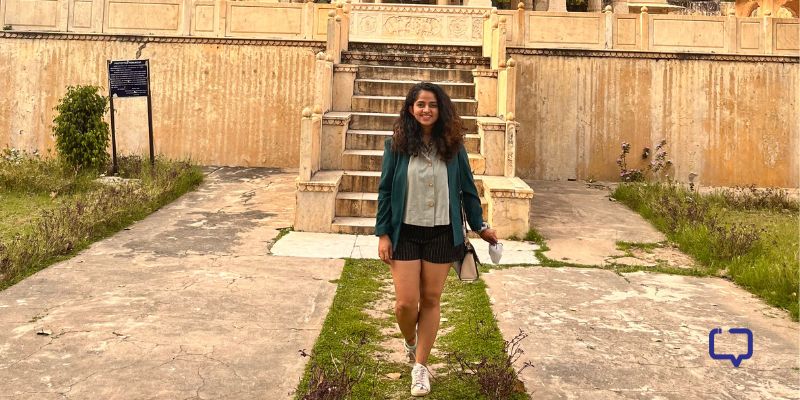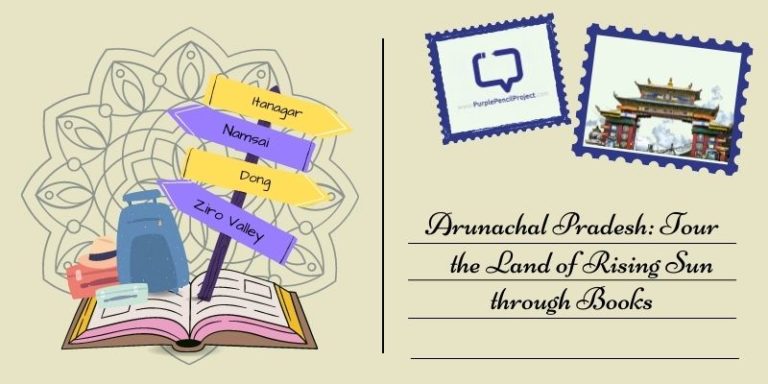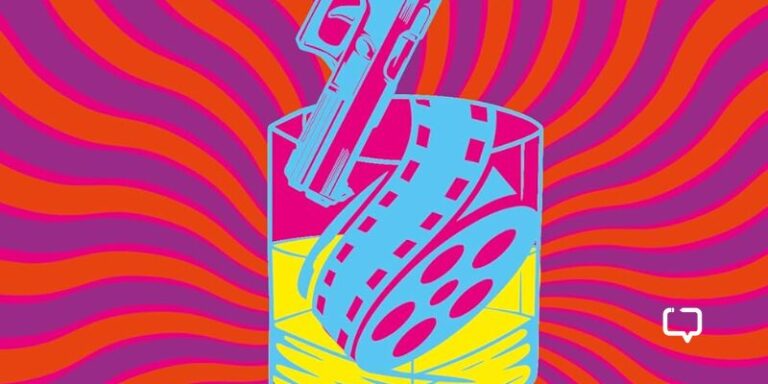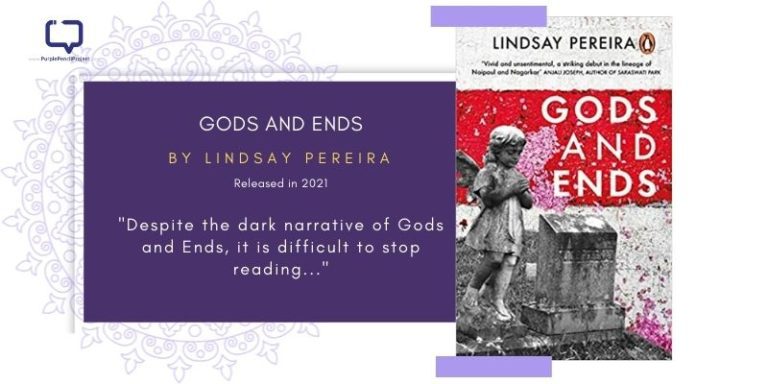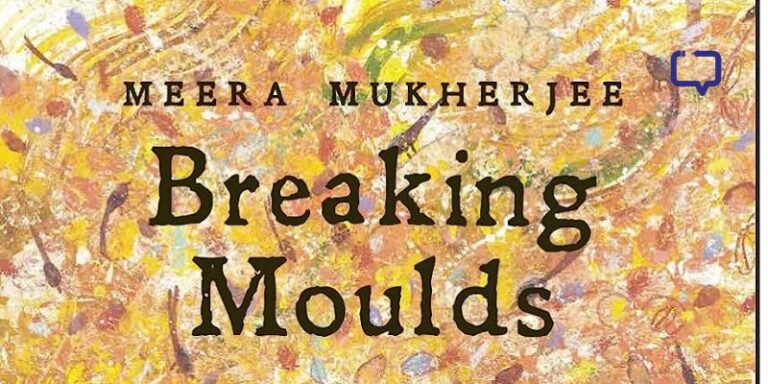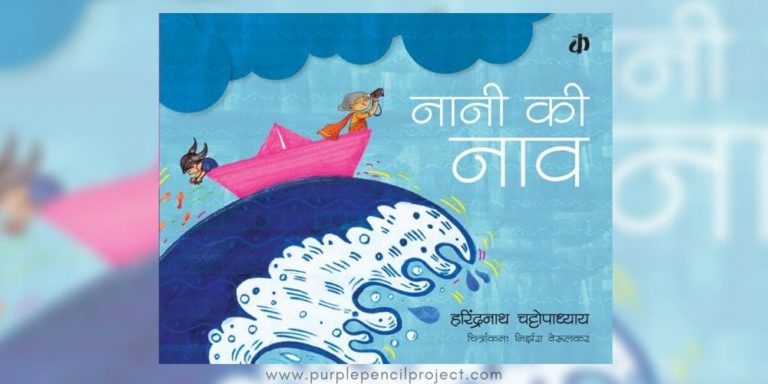It was the Godrej Lit Fest weekend in Mumbai on November 15, 16, and 17th, kickstarting a slew of literature festivals in India from now till at least early February, from Pune, Delhi, Goa, Kerala, Jaipur, Bhutan, and more. And these are just a few major ones.
I have been attending these for nearly 10 years now, in varying capacities for varying periods (Disclaimer: I have attended Jaipur and Mumbai more. Pune once. The others I have followed closely online as P3 team has covered them, so there are biases in how I experience them).
First, I was happy being in the audience, and it was a thrill to plan sessions for the day, run from one venue to another, and bump into familiar faces, as in the case of the Jaipur Literature Festival. Discussing stories about stories, talking about books being released.

Then, once we started with the Purple Pencil Project, I got to experience the same spaces as media. At its bare minimum, the media pass allows us to enter spaces without long queues, and at its best, like at JLF, you are set up with authors through the day for one-on-one interviews and interactions.
This is to say that I have been there as both, an unknown attendee, and someone who had some privilege.
First up, these experiences do not come cheap. Even if the entry is free for most, you pay for so many other things at every step of the way:
- Travel and stay
- At least two meals a day
- Buying books
- When I started going to Jaipur, I had to also invest in a whole new winter wardrobe
- Money spent on socialising
This is the bare minimum, not to mention the big chunk of time you take away from your day job or ‘working’ hours.
These costs have had slightly diminishing returns year-on-year.
What I am about to say comes from a place of deep love and gratitude for literature festivals in India as a space to nurture both creativity and free speech; they help me find a tribe of fellow storytellers and story seekers, give me an in-person experience of some beloved authors, make new friends, and, of course, be nerdy and obsessive through it all.
This is why I want to see them change.
To grow with them, not outgrow them.
Format of Literature Festivals in India
The typical literature festival format is a stage or more, with one or more speakers at a time who discuss writing, the value of books, themes of their books, the publishing journey, and possibly now AI. Some, like JLF, have a music stage before and after to introduce variety. Some experiment with non-literary sessions like cookbooks or self-help books. The Mumbai LitFest this year had a central lounging area where you would some cute games, a photo booth, an interactive wall where you could pin up black-out-poetry.
Yet, the over all experience remains unaffected by these ornamental moments. The highlight is still on speakers, who change but marginally over the years, where discussions revolve around fairly generic questions. Perhaps our speakers are also not as candid, stay-shy, or just want to be politically correct. Either way, there is not much value in traveling to sit on a chair and hear people speak, especially if you have heard them speak before.
In a recent Humans of Cinema interview, Shoojit Sircar talked about what art is according to him. “Art is not what is created, but if you can talk about what is created.”
This really is the articulation I had been searching for. Festival experiences are when you can talk about them – good OR bad. The literature festivals has become what no live experience should be – neither great nor bad. It just is.
What could be different?
- A live translation session to get a peak into the process of creative collaborators
- More debates. The closing debate of JLF last year was a highlight. I would love to see more such forums
- Rare book displays and archives: a good way to show reverence to our past and honour the book’s own legacy as a piece of technology
- Straight up book club type sessions hosted with the author present, instead of a speaker session. A far more valuable hour than the “Tell us how this book came about“. People sit in concentric circles, and the innermost circles are reserved for those who have read the books, and the listeners can sit at the back.
- Have discussions around multimedia literary adaptations to reimagine literature for the future, not just the past.
- Have inter-generational panels to understand change and how different generations perceive art or the same topic.
- How about a blindfold poetry or music session to learn to ‘listen’ without distraction? Could just be for 5-10 minutes but that experience would be so much richer, more immersive.
- A live lyric session, where musicians set beats to poetry – a sing-along that’s also about the craft and about collaboration.
- Get people to record pages of a short novella, and create an audio book out of it?
Themes covered at the sessions
In the last few years at the literature festivals in India, some themes and topics have been spoken far too repeatedly in the exact same manner. Climate change, feminist writings, for instance. Colonial histories.
These are systemic issues we 100% should represent a lot more, and engage with more deeply, but there have to be ways to make it impactful, to drive change. These are large scale issues that don’t change exponentially change year or year. We cannot reintroduce old things as if they were new. And our discussions should help us chart the way forward, not JUST dwell on the past.
We also need to see younger voices speaking about them. We need to look beyond the handful of topics, and the limited views of histories that we speak about. The duty lies on the organisational team to look beyond their own interests and friends to bring in view points from those who consume stories and knowledge, not just ‘readers’ but people who enjoy a good storytelling experience.
Readers, even those who once took pride in finishing 1000 page books in one sitting, are increasingly reading fewer or smaller books. That’s okay.
Books contained stories and lessons, contexts and details. None of that is going away, but the form is transforming. There is no doubt about it.
Space for new and emerging reading trends
The place to start featuring diverse themes is ground realities of literature and storytelling trends. Books are slow to write, so it’s not a surprise that what you read in them may feel a bit dated. That deliberate slowness is the beauty of the book.
But there is the other side of the book – the reader. Current consumption trends are woefully missing on panels at literature festivals in India (as I see them).
For instance, anime saw a huge boom last year, but few literature festivals in India, if any spoke about it. Same goes for ‘non-literature’ books like comics and graphic novels. There is a space for even spoken word to interact with traditional poetry.
There’s just so much happening more than the Nielsen book scan but these festivals are unable to look beyond it. In being purists in a multimedia, multi-format world, we are doing a disservice to storytelling in general.
Another side to the story is to balance the local and the global; which I think JLF, KLF do incredibly well. Mix-up local voices with global writers, platform them so that they benefit from each other. There’s no point having a obscure-author panel if no one is going to attend it because you scheduled Shashi Tharoor or Gulzar’s session at the same time. And there’s no point putting up a non-English author if you are also not educating the audiences to the language’s history, making it sensory.
For instance, Literature Live Mumbai had a special focus on Marathi authors this year. Fantastic.
Could the general area not have had a “auto-translation” booth, where you spoke in a language and heard it’s translation back in Marathi?
Could there not be bolder ways of drawing people into the world of Marathi art?
A ‘Did You Know’ series about the world authors who had Marathi translations?
I can think of a million ways to spotlight authors and storytelling cultures, and bring them out of obscurity.
The future is in experience design
This should have been the first point. I know ‘there’s no money in literature or literature festivals’. But think about user-experience at a festival and you can do a lot with little.
Here’s an example. At most literature festivals in India, the stage, sound, and lighting for poetry readings and panel discussions is the same. This, from an event experience perspective, is a big bummer.
Poetry is intimate. I don’t want a stage. Poetry is subtle, I don’t need two giant speakers blasting it at one end of the room.
Each format deserves its own floor design. Can we not have poetry in the parks, for instance, at sunset, with a little music, some tea, some chorus. Literature Live did it this year, courtesy the fabulous Poets of Mumbai, helmed by Ripal Dixit.
In a post-COVID world, physical spaces must be community-centred, not speaker-focused. I can listen to anyone online.
The attendees must feel like part of the experience, not external to it. And the spaces must be created to that end – from entry to exit.
What else could be done at literature festivals in India?
The best festivals or live experiences engage all the senses and rasas, from the moment you enter. At JLF for instance, the first venue is open air; and you will always hear conversation as you cross from one venue to another.
Can we have an attendees only no-phone zone so that they can talk to each other?
Can we have little discussion pop-ups, where attendees can go participate, feel seen?
Can we design for a best book review and appreciation highlight?
Organise a speed reading contest? A quiz night?
As an audience, I would like to have fun, not just be spoken to, session after session after session, with no feedback loop. This creates a poor live event culture, a passive festival audience.
Conclusion
Books are my best friends because of the worlds they create for me to be a part of. But even the book was a disruptive technology at one point in time. In an era of the next disruptive technology, we cannot treat books in a silo removed from how we consume storytelling at large. We have to be honest with ourselves that the paperback will evolve whether we like it or not.
Everyone is reading less but that does not diminish the value of reading; which at its core is the slow, reflective, contextual consumption of a story.
Spaces evolving to honour this change will not be doing books a disservice. They will be serving storytelling and reading in a big way.
If you want to talk more about this, poke holes in my thinking, point out my blind spots, find a way to partner to create these rich multimedia experiences, or simply pick more of my brain, please email me prakruti[at]purplepencilproject[dot] com
You can also directly book a call with me through my calendly.







